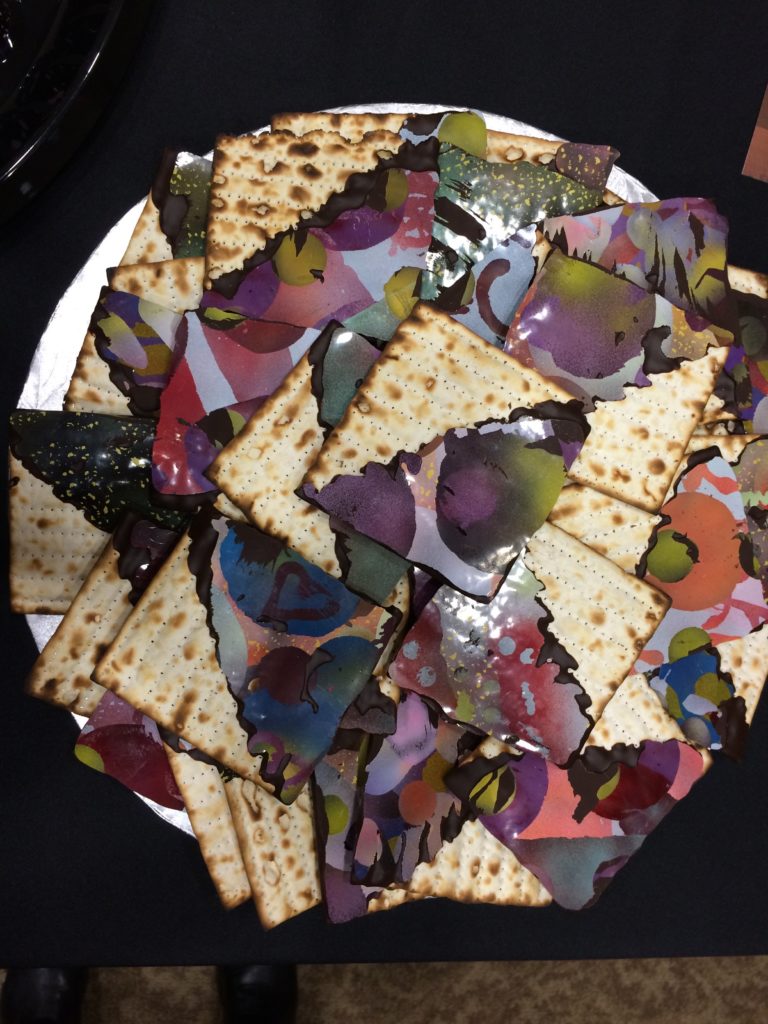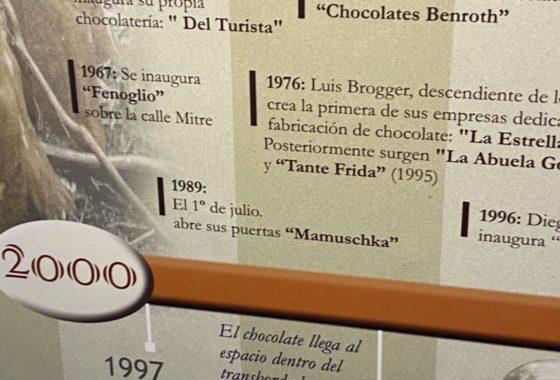Matzah – But, the Dough Did Rise!
The Jewish “starter story” of the Book of Exodus traced Jewish salvation from slavery to freedom through matzah which is perhaps the oldest type of bread in continuous Jewish consumption. The narrative recounted Joseph’s rise to power in Egypt through themes of rationing of grain supplies. Bread and its unleavened version, matzah, helped to fashion the Jewish people. Any Sunday school child can explain matzah by recalling that “the dough was not leavened” when the ancient Hebrews, escaping Egyptian slavery, “could not delay.” So, they wrapped their kneading bowls in their cloaks, and later, arriving at a place called Sukkot, they fashioned “unleavened cakes,” or matzah, from that dough. And, to this day Jews everywhere exert countless hours to remove any leavening or chameitz from homes and bakeries (and according to a newly passed law in Israel, from hospitals, too) and eat matzah instead for the entire festival of Passover.

But, all the of the effort and energy focused on eliminating chameitz from our homes and from our food, all of the matzah rituals and requirements rely on a misunderstanding of the biblical passage! And, because of that mix-up, we end up without bread year after year. It’s a simple matter of chemistry. Flour and water combined–even without any starter or leaven–warmed by the desert sun, hidden under cloths, would result in a risen dough, chameitz. The dough did rise.
Behind the Bible’s anti-chameitz passages hovered not a dough mishap but antagonism to ancient Egypt’s advanced yeasted bread technology and its polytheistic worship. The unleavened matzah of Passover condemned ancient Egypt in a polemic against Egyptian power acquired through its grain. Passover’s chameitz-free zone rejected Egypt’s heathen gods whose worship depended on offerings of bread, according to the Zohar. More recently, food writer Gil Marks wrote in The Encyclopedia of Jewish Food:
“The invention of the starter is generally attributed to the ancient Egyptians, who created and refined many of the bread-baking techniques still used today. The association of raised bread with Egypt, as well as the starter’s Egyptian origins, certainly contribute to the inclusion and significance of chameitz …as Passover taboos.” (p. 543)
Recent Posts
-
On the Chocolate Trail in Bariloche, Argentina
In March, Mark and I finally extended our chocolate trail explorations in celebration of our special anniversary to Bariloche…via Miami, Buenos Aires, Ushuaia, Antarctica, and Buenos Aires again. There were international flights, a cruise, a couple of domestic flights to get there. All of the travel was amazing, but Bariloche, sometimes called the chocolate capital
Read more › -
Sunday Yeast Polemics: On the Bread Trail
Leavened bread or not? While some of us may think of Passover, the question applied to Eucharistic bread and created significant division in the early Christian Church. The leavened bread for Sunday use was often baked at home by women. Over time, preferences shifted to clergy, church-produced, breads… and, the Eastern Orthodox Church preferred a
Read more › -
Sweet Treat: Chocolate and the Making of American Jews
You may wonder: how did chocolate help define American Jews? Through chocolate, we see that Jews were part of America since its earliest days. Well, since 1701 at least, Jews in the Colonies made part of their living through chocolate. Several Sephardim, leaders of their New York and Newport Jewish and secular communities, participated in
Read more › -
How About Some Uterus Challah?
When Logan Zinman Gerber felt enraged about the loss of reproductive rights in the U.S., she baked challah. Not any challah. She shaped it into a uterus. It wasn’t long after the birth of her daughter that Gerber, a longtime challah baker and staff member of the Religious Action Center of the Reform movement, considered
Read more ›
Some Previous Posts
(in alphabetical order)
- "Boston Chocolate Party" Q&As with Deborah Kalb
- 2022 Media for The "Boston Chocolate Party"
- A Manhattan synagogue explores the rich, surprising history of Jews and chocolate
- About Rabbi Deborah Prinz
- Baking Prayers into High Holiday Breads
- Boston Chocolate Party
- Digging into Biblical Breads
- Exhibit Opens! Sweet Treat! Chocolate & the Making of American Jews
- For the Easiest Hanukah Doughnuts Ever
- Forthcoming! On the Bread Trail
- Funny Faced Purim Pastries
- Good Riddance Chameitz or, The Polemics of Passover's Leaven
- How About Some Uterus Challah?
- Injera*
- Jewish Heritage Month: Baseball & Chocolate!
- Matzah - But, the Dough Did Rise!
- Plan a Choco-Hanukkah Party: 250th Anniversary Tea Party
- Prayers Into Breads
- To Shape Dough: A Trio of Techniques
Archives
2025
▾- All
2024
▾- January
- February
- March
- May
- July
- All
2023
▾- March
- April
- May
- June
- August
- November
- December
- All
2022
▾- February
- April
- November
- December
- All
2021
▾- March
- April
- October
- November
- All
2020
▾- April
- May
- June
- October
- December
- All
2019
▾- January
- February
- April
- May
- July
- August
- September
- October
- December
- All
2018
▾- February
- March
- April
- May
- July
- September
- October
- November
- December
- All
2017
▾- January
- February
- March
- July
- September
- October
- November
- December
- All
2016
▾- January
- February
- March
- May
- July
- August
- October
- November
- All
2015
▾- January
- February
- March
- May
- June
- July
- September
- November
- All
2014
▾- February
- April
- May
- June
- August
- September
- November
- All
2013
▾- March
- April
- May
- June
- July
- September
- November
- All
2012
▾- January
- February
- March
- April
- September
- October
- November
- December
- All
2011
▾- April
- July
- August
- October
- November
- All
2010
▾- January
- February
- April
- July
- August
- September
- October
- All
2009
▾- January
- June
- July
- August
- October
- All
2008
▾- August
- September
- October
- November
- All
2007
▾- January
- June
- July
- All
2006
▾- November
- December
- All



